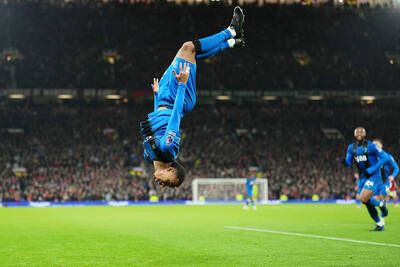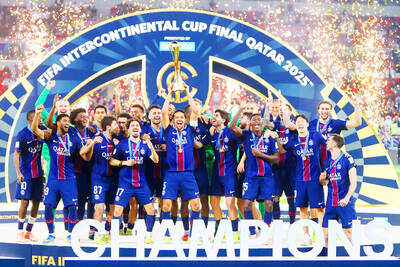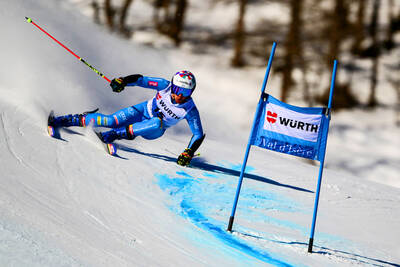World record holder Haile Gebreselassie has confirmed in an interview with a Spanish newspaper that he will not run in the Beijing Olympics marathon because of the climatic conditions in the Chinese capital.
"I have no intention of committing suicide in Beijing," the Ethiopian, who suffers from asthma, told El Pais. "I know that several other athletes are starting to have doubts about this."
"It's purely a personal decision that I have taken to protect my health. I do not want to endanger my future. I do not want to kill myself in Beijing.
"The marathon will be impossible because of the pollution, heat and humidity," he said before confirming that he intended to focus instead on the 10,000m.
"I want to be an Olympic champion once again and also to compete in Beijing. That's why I have been trying to find a solution and that would be to once again compete in the 10,000m as I did at Atlanta, Sydney and Athens."
To do so, however, he will first have to secure his qualification as one of the three Ethiopian runners eligible to run in Beijing.
Meanwhile, Steve Redgrave, Britain's most successful Olympian, will run in the London leg of the Beijing torch relay.
The former rower's participation as one of the 80 runners in the relay, which will be held on April 6, was announced on Monday by Olympic sponsor Samsung. Redgrave, who won his fifth consecutive Olympic gold medal at the 2000 Sydney Olympics, also ran in the Athens torch relay.
"With the Olympics in 2012 getting ever closer there is no better time for the general public to engage with the Olympic spirit, customs and tradition -- and the torch is a big part of that," said Redgrave, referring to the 2012 London Games.
Samsung said Chelsea chief executive Peter Kenyon will also run, along with four competition winners.
Only three other runners have been announced -- two-time Olympic champion Kelly Holmes, British broadcaster Trevor McDonald and actress Amara Khan.

By the time Cameron Menzies finally left the arena on Monday, the blood gushing from the gash on his right hand had trickled down his wrist, part of his forearm and — somehow — up to his face. Smeared in crimson and regret, and already mouthing sheepish apologies to the crowd, he disappeared down the steps, pursued by a stern-looking Matt Porter, the chief executive of Professional Darts Corp (PDC). The physical scars from Menzies’ encounter with the Alexandra Palace drinks table after his 3-2 defeat against Charlie Manby at the Darts World Championship would be gone within a few weeks.

Manchester United on Monday blew the lead three times to miss out on moving up to fifth in the Premier League as AFC Bournemouth would not be beaten in a thrilling 4-4 draw at Old Trafford. United have lost just once in their past 10 games, but Ruben Amorim would be frustrated as more points at home were frittered away despite arguably the best attacking display of his reign in charge. Amad Diallo and Casemiro gave the hosts a halftime lead either side of Antoine Semenyo’s equalizer. Two Bournemouth goals from Evanilson and Marcus Tavernier in seven minutes at the start of the

LOW-GOAL SHOOT-OUT: Of the nine penalties in the shoot-out, only three went in, with Flamengo’s Samuel Lino, and Vitinha and Nuno Mendes of PSG netting Matvei Safonov on Wednesday made four straight penalty saves in a penalty shoot-out to help Paris Saint-Germain beat Flamengo in the Intercontinental Cup final and win a sixth trophy of the year. The Russian goalkeeper was thrown in the air by his teammates after his exploits in the shoot-out, which was won 2-1 by PSG after a 1-1 draw after extra-time. It completed a trophy-laden 12 months for the French team, who had already won the Trophee des Champions, Ligue 1, the Coupe de France, the UEFA Champions League and the UEFA Super Cup — also on penalties against Tottenham Hotspur in

Italian Luca de Aliprandini described Saturday’s World Cup giant slalom at Val d’Isere as the hardest race of his life, coming two days after his Swiss partner Michelle Gisin suffered a heavy fall in training which required neck surgery. De Aliprandini finished 26th in the men’s event won by Loic Meillard, but the result paled into insignificance with two-time Olympic ski champion Gisin in hospital with injuries to her wrist, knee and cervical spine (neck). “It was Michelle’s wish that I race here. I couldn’t say no to her, but it was the toughest race of my entire life,” an emotional De